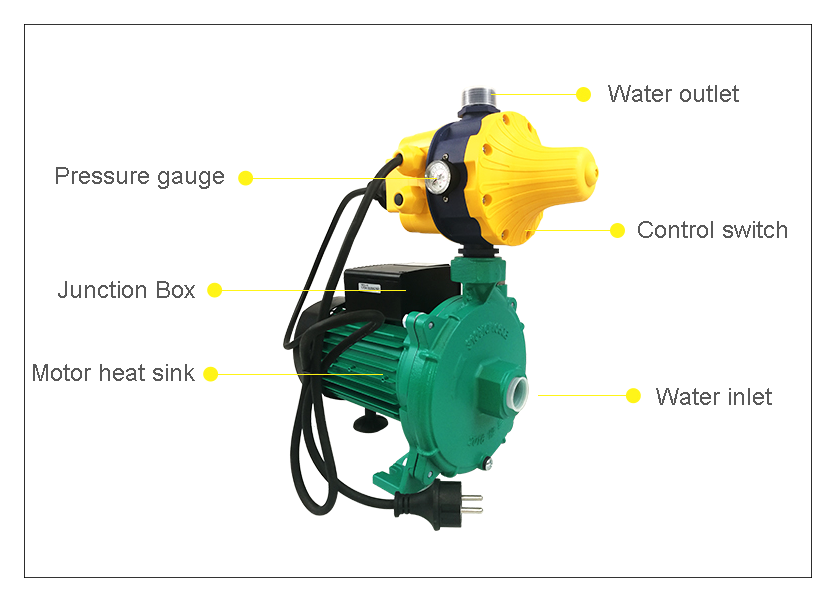Views: 1 Author: Site Editor Publish Time: 2024-01-15 Origin: Site

Choosing the right booster pump for a heat pump system involves considering various factors to ensure optimal performance and efficiency. Booster pumps are typically used to increase water flow and pressure in the system. Here are some steps to help you choose a booster pump for your heat pump:
Understand System Requirements:
Know the flow rate and pressure requirements of your heat pump system. Consult the manufacturer's specifications or technical documentation for this information.
Determine Head Pressure:
Calculate the total head pressure, which is the sum of the pressure required to overcome friction losses in the piping, elevation changes, and the pressure required by the heat pump itself. This information is crucial for selecting a booster pump with the appropriate head capacity.
Consider Pump Type:
Select a pump type that suits your application. Common types include centrifugal pumps and positive displacement pumps. Centrifugal pumps are more common for water-based heat pump systems.
Size the Pump:
Choose a booster pump that can provide the required flow rate and head pressure. Ensure that the pump's performance curve matches the system requirements.
Efficiency and Power Consumption:
Consider the energy efficiency of the booster pump. Look for pumps with high efficiency ratings to minimize operating costs. Additionally, check the power requirements and ensure they align with your power supply capacity.
Material and Construction:
Consider the materials used in the construction of the pump. Choose materials that are compatible with the fluids in your heat pump system to prevent corrosion or other issues.
Temperature and Environmental Conditions:
Ensure that the booster pump can handle the temperature range of the heat pump system. Consider any specific environmental conditions, such as outdoor installation, exposure to sunlight, or exposure to chemicals.
Noise Level:
Consider the noise level of the booster pump, especially if it will be installed in a residential or noise-sensitive area. Some pumps are designed to operate quietly.
Brand and Reliability:
Choose a reputable brand known for producing reliable and durable pumps. Read reviews and seek recommendations from professionals in the industry.
Installation and Maintenance:
Check the ease of installation and maintenance requirements. A pump that is easy to install and maintain can save time and costs over the long term.
Compliance with Standards:
Ensure that the booster pump complies with relevant industry standards and regulations.
Always consult with a professional HVAC or heat pump system installer to ensure that the chosen booster pump meets the specific requirements of your heat pump system. They can provide valuable insights based on your system's design and operational needs.